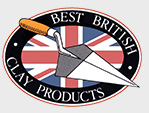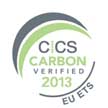Plum red

In the late 19th and early 20th century, deep red smoothfaced machine made plain clay roof tiles were particularly popular on dominant buildings and churches.
Most current red plain clay roof tiles tend to be more pink in appearance than tiles produced a century ago. However, the Dreadnought Plum Red Smoothface traditional single camber clay tiles provide a colour and finish indistinguishable from the traditional tiles of old.
Smoothfaced
Case Studies
St John the Evangelist Church, Dulwich
Highly Commended project in the "Best Ecclesiastical Refurbishment" category at the CRTC awards
Plum Red and Country Brown with ornamental tiles and bespoke handed hips


The versatility and distinctiveness of clay tiles means they restore character, charm and historical magic to refurbishment and heritage projects. The end result at St John the Evangelist Church is superb and the new spire roof has given the building a whole new lease of life as it towers over its neighbouring streets of Victorian houses. Full Details
Clementsbury
The original tiles on Clements Farm were a natural deep rich red and the Dreadnought Plum Red Smoothfaced traditional single camber tile provided a colour indistinguishable from the originals. Special crested ridges and finials were manufactured to match the originals. Full Details
Arts and Crafts Restoration Sandford House
Sandford House is a 'B' Listed Arts and Crafts House built in 1902 near to Dundee in Scotland and its renovation has featured on BBC’s Restoration Home with Caroline Quentin. The old Rosemary clay roof tiles on the main part of the house date back to 1910 and they are still in place on the roof and looking good but the concrete tiles on the “holiday homes wing” were starting to disintegrate and had faded to a dull grey. The owners decided to replace them with clay tiles to match the original Rosemarys and found that many tiles on the market today are not naturally coloured but have applied artificial stains. However they found Dreadnought’s Plum Red tiles to be an excellent colour match. Full Details
Technical Info
Dreadnought Tiles conform to BS EN 1304:2013 and should be fixed in accordance with BS 5534 "Slating and Tiling" part 1 & 2 and BS 8000 Part 6.
![]() Freeze Thaw Standards require plain clay tiles for use in the U.K. to withstand at least 150 freeze / thaw cycles under method E of European Standard EN 539-2:2013. At Dreadnought Tiles we regard this as too low for our climate and we therefore test our tiles to withstand in excess of 400 cycles.
Freeze Thaw Standards require plain clay tiles for use in the U.K. to withstand at least 150 freeze / thaw cycles under method E of European Standard EN 539-2:2013. At Dreadnought Tiles we regard this as too low for our climate and we therefore test our tiles to withstand in excess of 400 cycles.
Download Freeze Thaw Testing Report >>
Download this info as a pdf >>
Download Specification sheet as a word doc >>
| Tiles | Eaves | Gable | |
| Size | 265x 165 mm | 215x 165 mm | 265 x 248 mm |
| Weight | 1.19 kg | 0.95 kg | 1.8 kg |
| Pattern | Traditional Single Camber | ||
| Material | Etruria Marl | Etruria Marl | Etruria Marl |
| Pitched Roofs | Vertical | |
| Minimum Lap | 65 mm | 32 mm |
| Maximum Gauge | 100 mm | 115 mm |
| Approx Weight at Maximum Gauge |
71 kg/m2 | 63 kg/m2 |
| Nails | 38 x 2.65 mm alloy | 38 x 2.65 mm alloy |
| Battens | 38 x 25 mm | 38 x 25 mm |
| Minimum Pitch | 35 degree |
Quantity Guide
| Tiles @ 100mm Gauge | 60m2 |
| 115mm Gauge | 53m2 |
| Eaves/Tops | 6/lineal metre |
| Gable (Tile and Half) | 5/lineal metre of verge |
| Hips and Valleys | 10/lineal metre of main rafter |
| Ridges | Supplied in 300 mm and 450 mm lengths |
Relevant Fixing Standards
| BS 5534 2014 | Code of Practice for Slating and Tiling |
| BS 8000-6.2013 | Workmanship on Building Sites |
| BS EN 1991-1-4:2005+A1:2010 | UK National Annex to Eurocode 1 -Actions on Structures - Part 1-4: General actions - wind actions |
Environmental Info
Place of Manufacture: Brierley Hill, UK
Environmental Management: ISO 14001 Download Certificate
Quality Management: ISO 9001 Download Certificate
Life Cycle: BRE 'A+' rating
Freeze Thaw Testing to in excess of 400 cycles Download Freeze Thaw Test Certificate >>
Energy: Fired in gas kilns to 1130 degrees
Raw materials: Etruria Marl Clay from our local quarry in Brierley Hill, sand
Lifespan: > 60 years. Second hand tiles that have been on roofs in excess of 100 years often sell for more than new tiles on the 2nd hand market
Recyclability: Can be crushed and used as aggregate and/or as an inert bulk fill
Packaging: We keep packaging to a minimum using wooden pallets. We do not shrink wrap or use plastic straps.
Find out more about Dreadnought Tiles approach to sustainability











-A.jpg)


